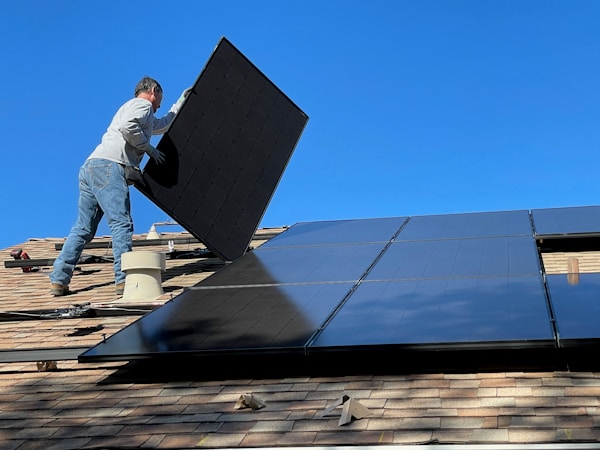Renewable energy is playing a vital role in mitigating climate change and transitioning to a sustainable future. Massachusetts, a state known for its commitment to environmental initiatives, has been at the forefront of renewable energy adoption. With abundant natural resources and a strong policy framework, Massachusetts offers numerous opportunities for individuals and communities to access renewable energy sources. In this article, we will explore various ways to obtain renewable energy in Massachusetts, enabling residents and businesses to contribute to a cleaner and greener future.
Solar Power
Solar energy is a popular energy source that harnesses the energy of the sun to generate electricity. Massachusetts boasts ample sunlight and offers several options for individuals and businesses to embrace solar energy. One approach is to install solar panels on rooftops, which can generate electricity for on-site use and even allow surplus energy to be fed back into the grid. Massachusetts offers attractive incentives such as net metering and Solar Renewable Energy Certificates (SRECs) to encourage solar panel installations.
Wind Energy

Another promising energy source in Massachusetts is wind power. The state’s coastal regions provide ideal conditions for wind turbines. One way to access wind energy is through community wind projects. These projects involve a group of individuals or communities coming together to invest in and own a wind turbine or a wind farm. By participating in community wind projects, residents can not only support clean energy but also benefit financially from the generated electricity.
Offshore Wind Farms
Massachusetts is pioneering the development of offshore wind farms, with ambitious goals to become a leader in this sector. Offshore wind farms have the potential to generate significant amounts of clean energy. The state has already awarded contracts for several offshore wind projects, which will bring large-scale renewable energy production to its coastal areas. Individuals and businesses can contribute to offshore wind energy by supporting these projects, advocating for their expansion, and exploring investment opportunities.
Renewable Energy Aggregators
Renewable energy aggregators are entities that bring together multiple energy consumers to purchase renewable energy collectively. These aggregators negotiate with suppliers on behalf of their members to secure sustainable energy at competitive prices. By joining a clean energy aggregator in Massachusetts, individuals and businesses can access renewable energy sources without installing their own generation systems. This approach makes clean energy more accessible, particularly for those who cannot afford or are unable to install solar panels or wind turbines.
Renewable Energy Certificates (RECs)

Renewable Energy Certificates (RECs) are tradable instruments that represent the environmental attributes of one megawatt-hour of renewable energy generation. Purchasing RECs allows individuals and businesses to support clean energy projects indirectly. In Massachusetts, various organizations offer RECs for sale, allowing consumers to offset their electricity consumption with clean energy. By buying RECs, residents can ensure that their electricity usage contributes to renewable energy generation.
Community Solar
Community solar, also known as shared solar, allows multiple individuals or businesses to share the benefits of a solar installation without having panels on their property. In a community solar project, a larger solar array is installed in a suitable location, and participants can subscribe to receive a portion of the energy generated. Community solar offers an opportunity for renters, homeowners with shaded roofs, or those with limited resources to access solar power and contribute to renewable energy generation.
Overall, Massachusetts offers a wide array of opportunities for residents and businesses to obtain renewable energy. From solar power and wind energy to offshore wind farms and community solar projects, there are multiple pathways to embrace clean and sustainable energy sources. By taking advantage of the incentives and initiatives provided by the state, individuals can make a significant impact on reducing carbon emissions and fostering a greener future.




